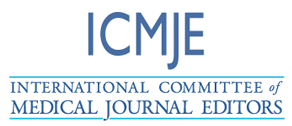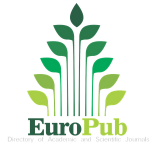Prenatal Exposure to Drugs and Alcohol: A Case Report on Effects on Fetal Development and Postnatal Life
DOI:
https://doi.org/10.55677/IJCSMR/V4I9-03/2024Keywords:
Prenatal abuse, Fetus exposed to alcohol, Fetus exposed to heroin, Behavioral disorder, Psychological problems in children with addicted mother.Abstract
Background: Exposure to addictive substances such as heroin and alcohol, as well as the misuse of amphetamines during pregnancy, not only poses serious physical and psychological risks to the mothers but also exposes their unborn children to severe and irreversible dangers. This article examines the impact of fetal exposure to heroin and alcohol. It is evident that mothers who experience addiction during pregnancy face feelings of guilt, helplessness, and shame after birth, which can hinder them from seeking help for their addiction.
When a fetus is exposed to heroin and alcohol, at least two major ways can cause harm. First, the destructive effects of addictive substances on the placenta, which connects the mother and fetus. Second, addictive substances like heroin and alcohol, which can cross the placenta, directly impact the fetus.
Infants born to mothers addicted to heroin and alcohol face physical risks such as premature birth and its consequences, abnormalities known as FASD (Fetal Alcohol Spectrum Disorders), NAS (Neonatal Abstinence Syndrome), and ADHD (Attention Deficit Hyperactivity Disorder). They also suffer from emotional, behavioral, and psychological issues post-birth, including anxiety, depression, aggression, emotional regulation problems, and difficulties with trust and intimacy with others.(1,2)
Case presentation: In this article, we examine a 47-year-old male patient whose mother was addicted to heroin and alcohol during pregnancy. The patient, who was born prematurely, has faced various psychological and emotional disorders. He suffers from physical weakness, depression, and stress, and has been hospitalized multiple times in different psychiatric centers. Despite hospitalizations and receiving medication, the consequences of his mother's addiction to heroin and alcohol during pregnancy still affect him.
Conclusion: Addiction to alcohol and heroin in pregnant women, besides causing severe physical and mental harm to the mothers, can have devastating physical and psychological consequences on the fetus and newborn if it does not result in miscarriage or stillbirth. Treating these consequences is not easily achievable, even with medical and psychiatric care. Here, we conduct a detailed examination of the effects of alcohol and heroin consumption in pregnant women on the fetus and a person’s life after birth. Separate studies are needed to investigate the conditions of addicted mothers during pregnancy and after that.
References
Maher BS, Bitsko RH, Claussen AH, O’Masta B, Cerles A, Holbrook JR, Mahmooth Z, ChenBowers N, Rojo AL, Kaminski JW, Rush M. Systematic review and meta-analysis of the relationship between exposure to parental substance use and attention-deficit/hyperactivity disorder in children. Prevention Science. 2024 May;25(Suppl 2):291-315.
Larson JJ, Graham DL, Singer LT, Beckwith AM, Terplan M, Davis JM, Martinez J, Bada HS. Cognitive and behavioral impact on children exposed to opioids during pregnancy. Pediatrics. 2019 Aug 1;144(2).
Nikolić S, Micić-Labudović J, Lukić V, Živković V. The presence of morphine as heroin metabolites in placental tissue and fetus: Case report. Srpski arhiv za celokupno lekarstvo. 2014;142(9-10):610-3.
Ornoy A. The effects of alcohol and illicit drugs on the human embryo and fetus. Israel Journal of Psychiatry. 2002;39(2):120.
Bashore RA, Ketchum JS, Staisch KJ, Barrett CT, Zimmermann EG. Heroin addiction and pregnancy. Western Journal of Medicine. 1981 Jun;134(6):506.
Naeye RL, Blanc W, Leblanc W, Khatamee MA. Fetal complications of maternal heroin addiction: abnormal growth, infections, and episodes of stress. The journal of pediatrics. 1973 Dec 1;83(6):1055-61.
Namboodiri V, George S, Boulay S, Fair M. Pregnant heroin addict: what about the baby?. Case Reports. 2010 Jan 1;2010:bcr0920092246.
Jovin VM, Vejnović A, Knezović G, Pavlović V, Vejnović AM, Dickov I. HEROIN ADDICTION & RELATED CLINICAL PROBLEMS. 25th year.
Reddy AM, Harper RG, Stern G. Observations on heroin and methadone withdrawal in the newborn. Pediatrics. 1971 Sep 1;48(3):353-8.
Wilson GS, Desmond MM, Verniaud WM. Early development of infants of heroin-addicted mothers. American Journal of Diseases of Children. 1973 Oct 1;126(4):457-62.
Boggess T, Risher WC. Clinical and basic research investigations into the long-term effects of prenatal opioid exposure on brain development. Journal of neuroscience research. 2022 Jan;100(1):396-409.
Maiuri J. Exploring The Effect of Maternal Heroin Use: A Case Study on Long-Term Neonatal Learning Outcomes.
Taylor MF, Coall D, Marquis R, Batten R. Drug addiction is a scourge on the earth and my grandchildren are its victims: The tough love and resilient growth exhibited by grandparents raising the children of drug-dependent mothers. International Journal of Mental Health and Addiction. 2016 Dec;14:937-51.
Stulac S, Bair-Merritt M, Wachman EM, Augustyn M, Howard C, Madoor N, Costello E. Children and families of the opioid epidemic: Under the radar. Current Problems in Pediatric and Adolescent Health Care. 2019 Aug 1;49(8):100637.
Steane SE, Young SL, Clifton VL, Gallo LA, Akison LK, Moritz KM. Prenatal alcohol consumption and placental outcomes: a systematic review and meta-analysis of clinical studies. American Journal of Obstetrics and Gynecology. 2021 Dec 1;225(6):607-e1.
Martín-Estal I, Castilla-Cortázar I, Castorena-Torres F. The placenta as a target for alcohol during pregnancy: The close relation with IGFs signaling pathway. Reviews of Physiology, Biochemistry and Pharmacology. 2021 Jun 23:119-53.
Cunningham CC, Bailey SM. Ethanol consumption and liver mitochondria function. Neurosignals. 2001 May 24;10(3-4):271-82.
Hoek JB, Cahill A, Pastorino JG. Alcohol and mitochondria: a dysfunctional relationship. Gastroenterology. 2002 Jun 1;122(7):2049-63.
Larkby C, Day N. The effects of prenatal alcohol exposure. Alcohol health and research world. 1997;21(3):192.
Hur YM, Choi J, Park S, Oh SS, Kim YJ. Prenatal maternal alcohol exposure: diagnosis and prevention of fetal alcohol syndrome. Obstetrics & gynecology science. 2022 Jul 29;65(5):385-94.
Coriale G, Fiorentino D, Di Lauro F, Marchitelli R, Scalese B, Fiore M, Maviglia M, Ceccanti M. Fetal Alcohol Spectrum Disorder (FASD): neurobehavioral profile, indications for diagnosis and treatment. Rivista di psichiatria. 2013 Sep 1;48(5):359-69.
Jacobson JL, Jacobson SW. Effects of prenatal alcohol exposure on child development. Alcohol Research & Health. 2002;26(4):282.
Downloads
Published
How to Cite
Issue
Section
License
Copyright (c) 2024 International Journal of Clinical Science and Medical Research

This work is licensed under a Creative Commons Attribution 4.0 International License.











